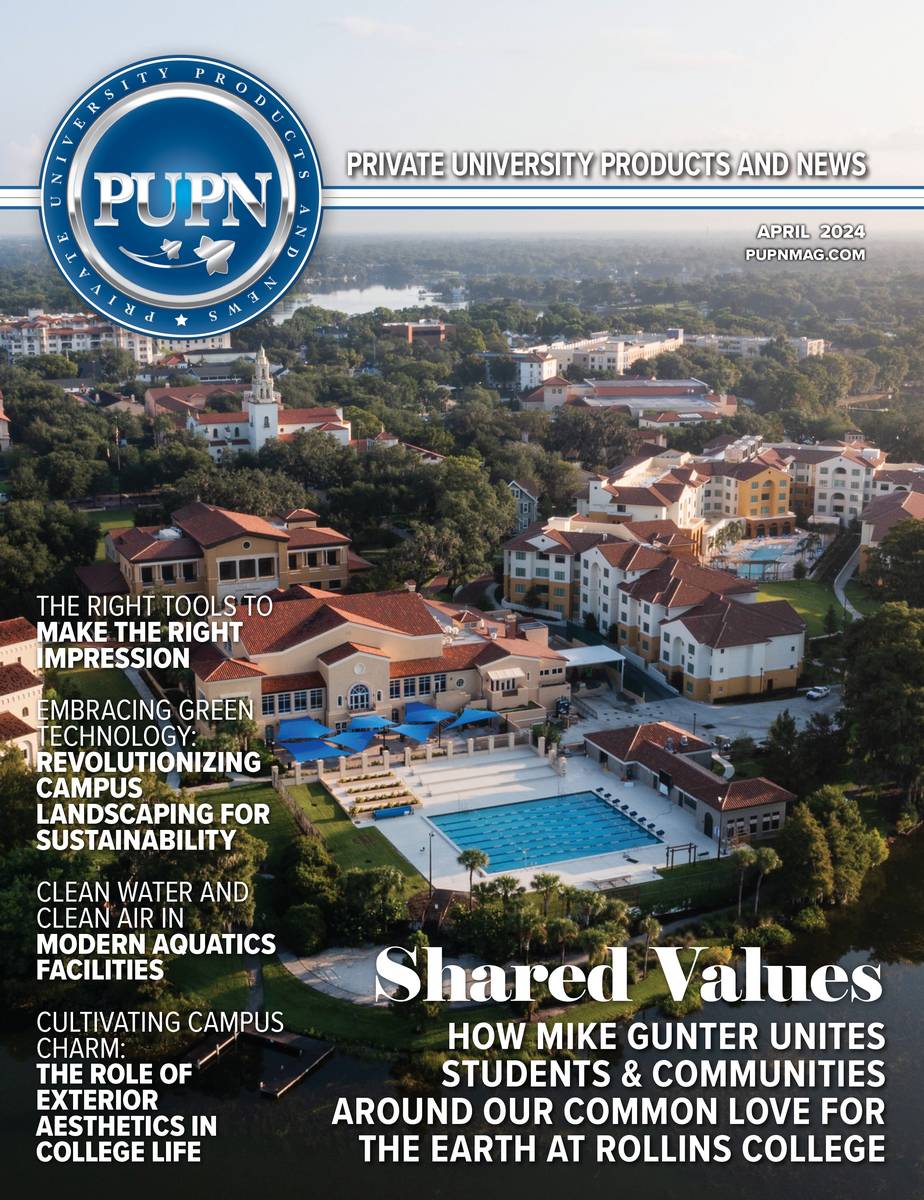Their work has been part of a growing partnership between Mercer-particularly the Tift College of Education-and Ricks Institute, which works to promote free primary education in Liberia.
Background-Dr. Craig McMahan: The “Heart” of Mercer on Mission
As the Dean of the Chapel, Dr. Craig McMahan notes that the Mercer On Mission (MOM) program in Liberia is “just one of a number of programs that we operate under the Mercer On Mission umbrella.”
As President William Underwood was beginning his tenure at Mercer in 2006, he charged McMahan with “developing a program that put Mercer students in international settings, working with humanitarian service agencies and other NGO’s and taking courses related to their location and service project.”
McMahan notes, “With such broad latitude, I had the opportunity to form Mercer On Mission into an international service-learning program that has been recognized on two separate occasions by the Clinton Global Initiatives and has been solicited by the United Nations to participate in their humanitarian aid interventions.”
Since 2007, Mercer On Mission has grown at an awe-inspiring pace. Last year, they sent 140 students and 30 faculty to 11 sites. “What is perhaps most significant,” McMahan notes, “is that as of last year all 11 of Mercer’s colleges and schools (liberal arts, engineering, education, college of continuing and professional studies, nursing, medicine, pharmacy, business, music, theology and law) have sponsored MOM teams.”
McMahan notes that MOM receives “tremendous support from all levels of our administration, particularly the office of the president” which is aggressive in seeking program funding-so much so that Mercer covers the entire travel budget-including air fare, food, lodging, and any other expenses for all participants. “This huge financial commitment ensures that every Mercer student, no matter what their family income may be, can participate in MOM.” McMahan also explains that faculty support has been equally farreaching and consistent-where faculty members have the freedom to shape and energize each program with their own creative input.
Not surprisingly, Mercer students are delighted about this opportunity. McMahan notes that MOM is identified as one of the university’s “signature programs,” with participating students repeatedly rating their MOM program as “the most important and formative component in their education.” Because of the program’s high profile and impact, MOM has also become a valuable tool for recruitment, with many students noting that the MOM program is often the “tipping point” when choosing their college.
McMahan explains that the program’s appeal is twofold-first, students crave travel and adventure, and MOM programs, in their focus on the developing world, force students into “liminal space” where they are unable to rely on presumptions; he adds, “they are forced to re-think everything, and that is when transformation happens.” Secondly, McMahan notes that students are drawn to “creative and high impact” humanitarian service. McMahan explains, “When students put a Mercer-manufactured prosthetic on an impoverished amputee in Vietnam or offer life-saving health care to an infant in Cambodia or provide clean water to a village in Kenya or teach students in Liberia, they know that they are really making a difference in the world and that experience is compelling beyond words. It instills in the students a sense of their own capacity and the enormous effect of their discipline, practiced on behalf of others.”
Dr. Richard Wilson: APP (American Papa)
The project was always intended to be a significant undertaking with long-lasting impact. Dr. Richard Wilson will soon lead students and faculty to Liberia for a fifth time. During the trips, they have focused exclusively on a K-12 school in Monrovia. When the civil wars ended in 2005, there was a wrecked infrastructure. During the war, the fighting moved across the campus, and rebels left the displayed paintings of former presidents pockmarked by bullets. Being only fifteen miles from the capital Monrovia, the campus was severely looted and vandalized during the civil wars.
Education students needed a practicum experience, so each Mercer student is paired with a Liberian teacher for three full weeks (15 class days). They do all the coursework they would be required to do in the states, but they all live in the same house and bathe in buckets. Wilson is the camp cook, each morning preparing French toast, scrambled eggs, and coffee before the first four-hour class. In class, they read books about war and rebuilding, or they visit churches and government buildings. One class is spent in St. Peter’s Lutheran Church where 600 refugees once sought peace; a warlord killed all 600.
As a Ricks graduate and current Mercer student on full scholarship, Massa T. Mamey calls Dr. Wilson an “intelligent, adventurous and people-loving man.” The Liberian students refer to Wilson as APP (American Papa) “because he is more than a father to us.” She adds, “I can talk to him about anything like any father and daughter will do; that’s how amazing he is.” According to Edmond Z. Cooper, another Ricks graduate and current Mercer student, their American Papa “has a strong passion for Ricks Institute and Liberia. His vision and dream for Liberia’s future is exemplified in his continued efforts to provide opportunities and education for Liberian children. His commitment and passion bring hope to everyone at Ricks Institute and Liberia and reassure them that if they can survive today there is hope for a better tomorrow.”
This is the same hope, Edmond notes, that keeps him motivated. He recalls a time during his 10th grade year at Ricks, when he interviewed Wilson on one of Wilson’s first trips to Liberia. “I had little idea about what I was doing and I just wanted to get news for the press club,” Edmond shares, but this young student left the room with “a strong conviction that hope was on its way to Ricks Institute.”
After commenting on Wilson as a blessing and sharing how grateful he was for the tremendous impact Wilson’s guidance and love has made to his life, Edmond adds, “I was amazed that a man from a faraway land believes in us and has passion and dream for our lives, and only if we work hard we will reach those dreams.” He explains that Wilson brings hope to many and “educates a generation that the future of Liberia depends on.”
Dr. Olu Menjay
Dr. Olu Menjay, the current principal of Ricks, grew up in a time when Liberian parents were afraid for their children to be conscripted by warlords; at his parents’ encouragement, he left home, but carried letters to Ivory Coast friends and family. Unfortunately, young Olu was stopped by rebel soldiers; when they found the letters, the soldiers believed him to be a spy. He was ordered to strip and prepare for execution.
Olu watched as the rebel soldiers executed another man they had stopped before him. When one of the soldiers asked his name and Olu told him, he was then asked if he was related to Harrison Menjay. Though he intuited the answer would determine whether he lived or died, and was not at all certain of the outcome, Olu told them Harrison Menjay was his father.
With a sudden shift in tone, the solider gave orders that Olu’s clothes be returned. He then offered Olu ten dollars and told him he was allowed to cross the border, after explaining that Harrison Menjay had given this would-be executioner a scholarship to go to the Baptist school years before.
In America, Olu first finished junior college and was later connected to Mercer by his pastor. In 1993, Olu showed up in Dr. Wilson’s office, wanting to major in both Sociology and Christianity. He has since received degrees from Duke University and Boston University; his PhD is from the University of Wales.
In 2005, the Liberian Baptist Convention asked Menjay to become the principal of this school that had been devastated by war. Once in office, Menjay asked Wilson to come visit, so-of course-he did. One year later, Wilson came again and brought Mercer students with him. Menjay says of Wilson, “Through Dr. Wilson’s pioneering servant leadership with the MoM program in Liberia, the program is becoming a signature program that is offering both Mercer students and the Ricks Institute community in Liberia relevant learning opportunities that have the propensity of shaping our two world contexts.”
Menjay also notes of Wilson, “He has the ability to make complex issues comprehensible and to push his students to search for new insights in any discussion. He is a humble and accessible person who loves to share his extensive knowledge with others, especially his students.”
President Underwood was very interested in the type of assistance Mercer could offer. Wilson told Underwood Menjay’s story and told him about the “heroic teaching” taking place in Liberia with virtually no resources. Underwood determined full scholarships would be offered to select students at Ricks, with the understanding they return to Liberia offer help, upon graduating: students covering diverse fields such as Education, Sociology, and Information Systems Technology. Every time Wilson gets on a plane to Liberia, he has scholarship letters for the next applicants.
Though most of the students are very successful, one had to return to Liberia because the studies were too hard. In another case, a young woman arrived at Mercer intent on studying Biology, but she had a dismal first semester. When Wilson explained that her current course of study wasn’t realistic, she cried and told him it was her dream.
He cried with her but then said, “Just because a dream has gone away doesn’t mean you can’t dream again.” That young woman is still at Mercer, with a new major. Though these moments are tough, certainly, Wilson explains, “This isn’t a charity program. We give them an opportunity, and they have to make it on their own.”
Finding Mercer students to go to Liberia hasn’t been difficult for Wilson nor has selling these students on the idea of service. Though many of the students who join MOM have religious backgrounds where mission work is a given, students aren’t screened on their religious backgrounds. “This has nothing to do with evangelizing,” Wilson notes. “It’s the gospel lived.”
Dr. Emilie Paille: Mother Paille
Dr. Emilie Paille wasn’t involved from the beginning. Her connection to the project started with Dr. Susan Malone, the Vice Provost for Institutional Effectiveness at Mercer. Dr. Malone grew interested in the project and asked Paille, an Associate Professor in the Tift College of Education, which faculty member might be interested in joining-the answer was easy for Paille; she was interested. Malone notes of Paille, “She was an ideal faculty representative, because of her experience directing our field experiences on the Atlanta campus and her adventurous spirit.”
Paille joined the project in 2009, and her focus was supervising the practicum students. Many of the Ricks students, having grown up in civil war, had been unable to prioritize education. As a literacy person, Paille was particularly troubled that no one was reading aloud to their students. In fact, she noticed that some of the educators were struggling with their own readings. Because the idea was to have experienced Liberian teachers paired with student teachers in need of a practicum, she quickly realized that an experienced teacher from the states was needed in the mix.
They tried bringing four local educators who were financially sponsored by their churches, but those teachers had no connection to Mercer; in essence, everyone arrived in Liberia without knowing the others or having the same pedagogical agenda. Additionally, these teachers were working in classes where 12-13 tribes were represented, all with different dialects, which meant students were often struggling for comprehension even among themselves. This left Paille and others thinking, “Surely there’s a better way.”
They realized that teacher leaders could be culled from their own campuses, students who were working on a master’s in education or doctoral degree. Paille was able to train two teacher mentors in 2011, working with those students in her own classes for a year. One of these mentors, Katherine Bechtel-Hall praises Paille’s passion for teaching younger children. She offers that Paille was always looking for ways to enhance student learning and maintain their interest- particularly in Liberia, where they were “dealing with a dialect barrier and it wasn’t always easy to find ways to reach the kids. Doctor Paille seemed to have a plethora of ideas to help support the student teachers and, as a mentor, these tools were invaluable to me.”
Katie Gallagher-a 3rd grade teacher-was another mentor who studied first with Paille, who they called “Mother Paille” in Liberia. Gallagher spoke to how accommodating and thorough Paille was and praised her openness to their suggestions. For one project, Gallagher recalls, they worked a great deal on a book list-what to bring there and leave there that would appeal to readers from kindergarten to their early 20s.
During this trip, Gallagher was working on her master’s in education, teaching full time, and raising 19-year-old Ben and 17-year-old Andrew. The day Mercer gave away scholarships in Liberia, her son was going to Georgia Southern for his first college experience. She found the day incredibly difficult, but then she realized those parents sharing this moment with her were sending their children to Macon for four years.
Having mentors from Mercer was extraordinarily helpful, Paille notes, in that the feedback is immediate. Paille also mentions the common room, where everyone eats together and works together. Her favorite thing abou










